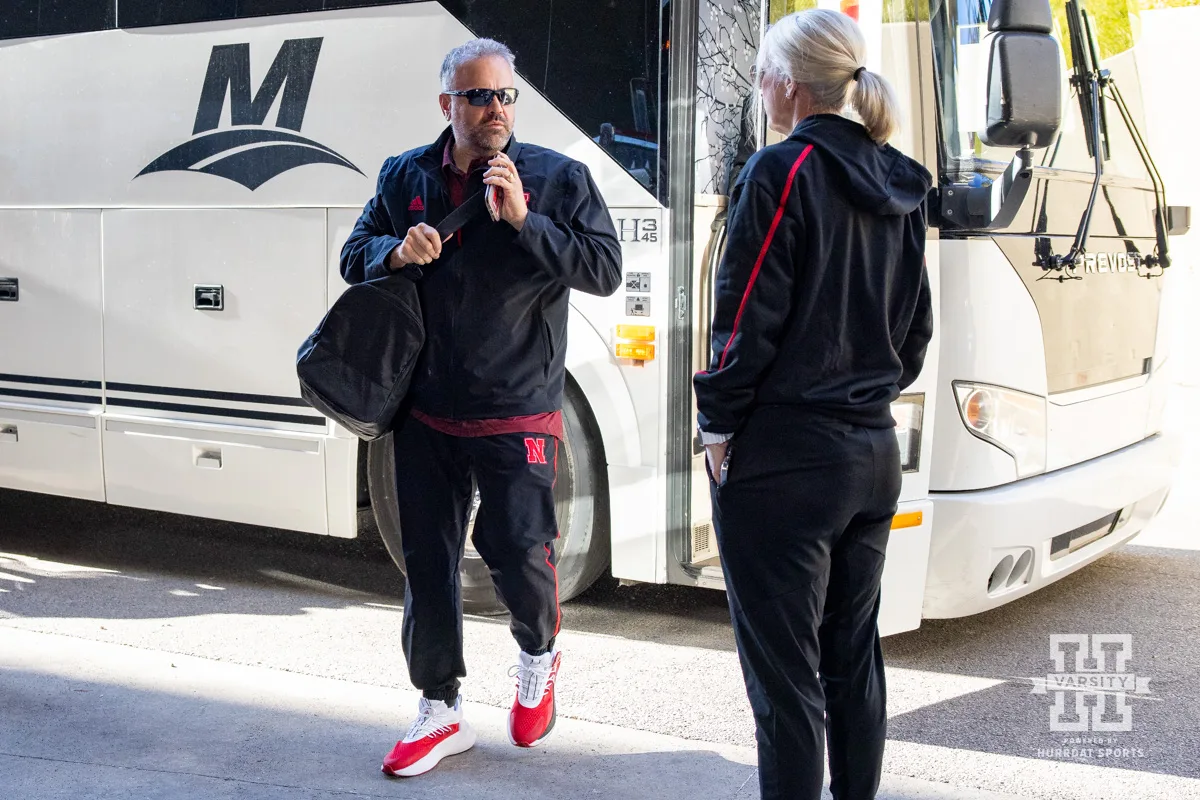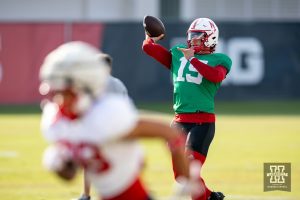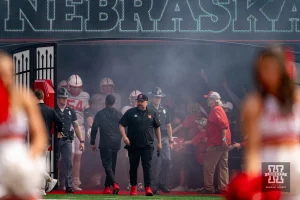Oh boy. For reference, if you are reading this in the future, this blog is being written the Monday after Indiana decisively defeated Nebraska, 56-7. Emotions have cooled a bit since that infuriating game, but the intensity of those feelings is still lingering. I’ve been reflecting using my experiences as a football coach, and I find myself compelled to pose this question: Will Matt Rhule prioritize loyalty to his coaching staff, or will he choose to focus on the long-term health of the program during this offseason? Will he stick by the coaches who have been with him, believing in their potential to grow and improve, or will he take a more pragmatic approach and make the tough calls necessary for revitalizing the program? Let’s look deeper into some of the issues surrounding this decision.
Saturday’s game served as a harsh wake-up call, exposing and magnifying many of the offensive issues that have plagued us over the past month. The lack of an offensive identity is glaringly apparent—it’s almost as if we have zero direction in our approach. Are we a run-first team? Clearly not, given that we threw the ball over 40 times in that game. So, what does this team actually do well offensively? In my opinion, the answer is unfortunately nothing at all. Marcus Satterfield’s performance as the offensive coordinator has been far from good or acceptable. However, I believe the problems run much deeper than just his game-day playcalling. When you look at the broader picture, you have to ask: what plays can you call when your offensive line isn’t generating a vertical push, struggles with pass protection, your wide receivers can’t gain separation, and the perimeter blocking has been nothing short of embarrassing. What plays do you turn to under these circumstances? This is not a defense of Marcus Satterfield; instead, it’s a harsher indictment of the entire offensive structure. It suggests that he may not just be an ineffective play caller- he seems to also be a poor coordinator overall. The alarming reality is that every single position group on offense has either regressed or remained stagnant since the Colorado game while other teams across the nation seem to be improving week by week as we move through October. This stagnation raises critical questions about the effectiveness of the entire offensive staff. Why hasn’t there been a noticeable improvement in execution? It’s time to take a hard look at the coaching methods, and overall philosophy that are currently in place.
When it comes to special teams, I have to be blunt: the performance is simply inexcusable. I find myself dumbfounded as I watch the same mistakes occur week after week. Initially, I gave some leeway regarding the bad snaps- yes, that ultimately falls on coaching, but players still have to execute the field goal operation. However, it’s the lack of situational awareness that truly crosses the line for me. For instance, fielding a kickoff at the 2-yard line and then going out of bounds is not just a minor misstep; it shows a fundamental misunderstanding of the game situation. Similarly, seeing gunners running through the end zone during punt coverage is baffling, as is returning kicks when the hands team is on the field. These are not just technical errors; they reflect a deeper lack of focus and preparation. One of these errors happening? Things happen. One player repeatedly making these mistakes? Bench him. Multiple players across multiple units making these mistakes every week? That is coaching. As someone who has coached high school football in the small state of Kansas, I can confidently say that these types of mistakes would not be acceptable at any level, even in small-town football. The expectation is clear: if you’re on the field, you need to know your role and execute. The ongoing issues with special teams raise serious questions about coaching and the emphasis placed on this critical aspect of the game. Special teams can often be the difference in tightly contested matchups, yet it seems to be an area where we’re consistently falling short. Without a sense of accountability, we risk undermining the potential of our entire team. It’s time for a serious evaluation of our special teams, because these errors cannot continue into the future seasons if we want any semblance of a good football team.
I bring up these issues to pose an important question: When it comes down to it, I recognize that Matt Rhule is fiercely loyal to his staff. However, at what point this offseason will we confront these glaring coaching deficiencies and take meaningful action? While I understand that significant changes may not occur until December or January (as they probably should) we have to ask ourselves: Are we prioritizing loyalty to the coaching staff over the needs of the players? The young men on this team deserve the best possible opportunity to succeed, and that means ensuring they are being coached effectively. They are the ones putting in the hard work day in and day out, and they deserve a coaching approach that maximizes their potential. As we look ahead, we must consider whether we’re committed to giving these kids their best shot to win, or if we will continue to under-develop them while remaining loyal to the “Matt Rhule guys.” This is not merely a matter of shifting responsibilities; it’s about the future of the program and the overall health of the team culture. Ultimately, the decision we face is whether to embrace change and seek improvement or to cling to loyalty at the expense of progress. The time for reflection and decision-making is fast approaching, and it’s imperative that we choose wisely to foster a winning culture that benefits everyone involved.
I know these thoughts are harsh, as harsh as I have ever written here. But I truly feel this way, for the first time under this new regime. Would love to hear thoughts on social media, whether you agree or disagree.



